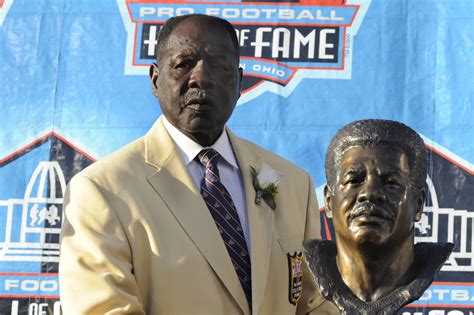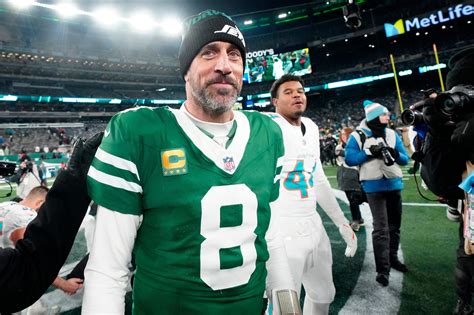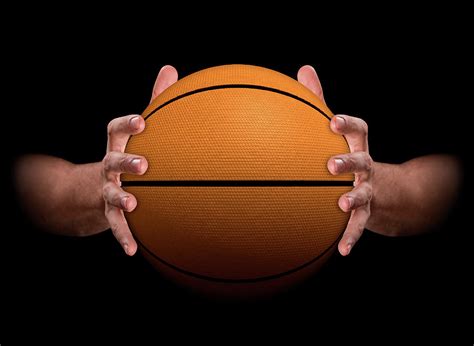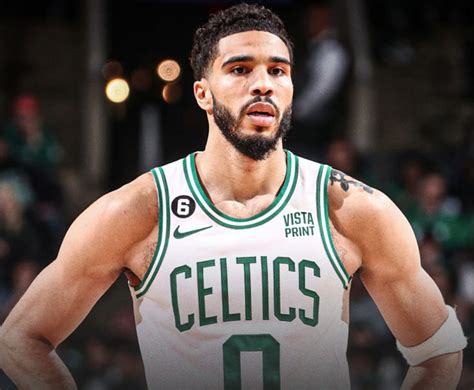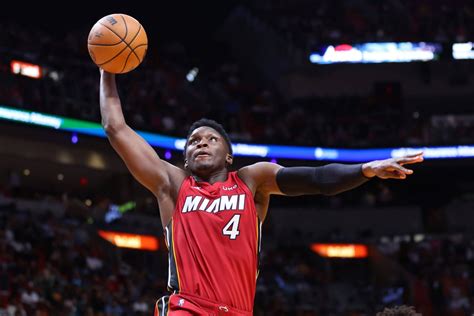
Victor Oladipo is setting the record straight: his multiple surgeries on his right knee were not botched. In a candid interview, the veteran guard addressed rumors and speculation surrounding his injury struggles, emphasizing that complications arose due to the inherent challenges of the initial injury and subsequent procedures, not surgical errors.
Miami Heat guard Victor Oladipo has publicly refuted claims that his multiple surgeries on his right knee were performed incorrectly, leading to his prolonged absence and struggles to return to his peak performance. In a recent interview, Oladipo addressed the swirling rumors and speculation head-on, asserting that complications arose not from surgical errors, but from the complex nature of the initial injury and the subsequent procedures required to address it.
“I know there’s been a lot of speculation about if it was a botched surgery or this and that,” Oladipo stated. “But at the end of the day, it wasn’t. It was just a very tough injury to deal with. I’m not here to place blame on anybody. Things happen. I’m just grateful to still be here and still be playing.”
Oladipo’s journey back to the court has been arduous, marked by multiple setbacks and extended periods of rehabilitation. The two-time All-Star initially injured his right knee in January 2019 while playing for the Indiana Pacers. The injury, a ruptured quadriceps tendon, required immediate surgery. While the initial surgery was deemed successful, Oladipo faced significant challenges in his recovery.
After a brief return to the court with the Pacers, Oladipo was traded to the Houston Rockets and subsequently to the Miami Heat. However, the knee continued to plague him, limiting his effectiveness and availability. In May 2021, Oladipo underwent a second surgery on the same right knee. This surgery, described as a tendon repair, aimed to address persistent issues and improve his long-term prognosis.
Despite the second surgery, Oladipo’s recovery remained slow and challenging. He missed a significant portion of the 2021-22 season, returning to the Heat lineup in March 2022. While he showed flashes of his former self, his performance was inconsistent, and he continued to manage the knee injury.
In May 2023, Oladipo underwent a third surgery on his right knee. This procedure, an arthroscopic surgery to address cartilage damage, further complicated his recovery timeline. The persistent issues with his knee have raised questions about the initial diagnosis and treatment, leading to speculation about the possibility of surgical errors.
Oladipo’s recent statements aim to dispel these rumors and provide clarity on the situation. He acknowledges the challenges he has faced but emphasizes that his focus remains on moving forward and contributing to his team. “It’s been a long journey, a lot of ups and downs,” Oladipo said. “But I’m still here, still fighting. That’s all that matters.”
The severity of Oladipo’s initial injury is a crucial factor in understanding the complications he has faced. A ruptured quadriceps tendon is a significant injury that requires extensive rehabilitation. The quadriceps tendon connects the quadriceps muscles to the patella (kneecap), and a rupture can severely impair the ability to straighten the leg and perform activities such as walking, running, and jumping.
The rehabilitation process following a quadriceps tendon rupture is lengthy and demanding, often requiring several months of physical therapy to regain strength, flexibility, and range of motion. Even with successful surgery and rehabilitation, some individuals may experience persistent pain, stiffness, or weakness in the knee.
In Oladipo’s case, the repeated surgeries and prolonged recovery suggest that he may have experienced complications such as scar tissue formation, nerve damage, or persistent inflammation. These complications can further hinder the healing process and make it difficult to regain full function of the knee.
Oladipo’s resilience and determination to overcome his injury challenges have been widely praised by teammates, coaches, and fans. Despite the setbacks, he has remained committed to his rehabilitation and has expressed a strong desire to return to his peak performance.
“I’m not going to give up,” Oladipo said. “I’m going to keep working hard and doing everything I can to get back to where I want to be. I owe it to myself, my teammates, and the fans to give it my all.”
Oladipo’s experience highlights the complexities of treating severe knee injuries and the challenges that athletes face in returning to competition after major surgery. While advancements in medical technology and surgical techniques have improved outcomes for many athletes, some injuries can still be difficult to manage and may require multiple procedures and extended rehabilitation.
The support of the Miami Heat organization has been crucial in Oladipo’s recovery. The team has provided him with access to top medical professionals, state-of-the-art rehabilitation facilities, and a supportive environment to focus on his recovery.
“The Heat have been amazing,” Oladipo said. “They’ve been with me every step of the way. I’m grateful for their support and belief in me.”
Oladipo’s story serves as an inspiration to other athletes who have faced similar challenges. His determination to overcome adversity and his positive attitude have made him a role model for many. As he continues his rehabilitation, Oladipo remains optimistic about his future and is determined to make a significant contribution to the Miami Heat.
“I know I have a lot left to give,” Oladipo said. “I’m excited about what the future holds and I’m looking forward to getting back on the court and helping my team win.”
The complexities surrounding Oladipo’s knee injuries also bring forth the importance of transparency in medical reporting and the need to avoid spreading misinformation. Speculation and rumors can often exacerbate the challenges faced by athletes recovering from injuries, and it is essential to rely on credible sources and accurate information when discussing medical matters.
Oladipo’s decision to address the rumors head-on demonstrates his commitment to controlling the narrative and providing clarity to the public. By sharing his perspective and addressing the speculation, he hopes to put an end to the misinformation and focus on his recovery.
The road ahead for Oladipo remains uncertain, but his determination and resilience suggest that he is capable of overcoming the challenges he faces. With the support of his team, his medical professionals, and his fans, Oladipo is committed to returning to the court and making a positive impact.
The Miami Heat’s investment in Oladipo, despite his injury history, reflects their belief in his potential and their commitment to providing him with the resources he needs to succeed. The team’s support and Oladipo’s unwavering determination create a foundation for a successful comeback.
While the timeline for Oladipo’s return to the court remains unclear, his progress in rehabilitation is encouraging. He continues to work closely with the Heat’s medical staff and is focused on regaining his strength, flexibility, and range of motion.
Oladipo’s story serves as a reminder of the physical and mental challenges that athletes face in their careers. Injuries are an inherent part of sports, and athletes must often overcome significant obstacles to return to competition. Oladipo’s resilience and determination exemplify the spirit of perseverance and the pursuit of excellence.
As Oladipo continues his journey, he remains grateful for the support he has received and committed to giving his all to the game he loves. His story is a testament to the power of determination and the importance of never giving up.
The situation surrounding Victor Oladipo’s knee injuries underscores the importance of comprehensive medical evaluations and personalized treatment plans for athletes. Every athlete’s body is unique, and injuries can manifest differently depending on various factors such as age, conditioning, and medical history.
Therefore, it is essential for medical professionals to conduct thorough evaluations to accurately diagnose the nature and extent of the injury. This may involve imaging tests such as X-rays, MRIs, and CT scans, as well as physical examinations and functional assessments.
Based on the findings of the evaluation, a personalized treatment plan should be developed to address the specific needs of the athlete. This plan may include a combination of surgical interventions, physical therapy, medication, and other modalities.
Regular monitoring and adjustments to the treatment plan are also crucial to ensure optimal outcomes. As the athlete progresses through rehabilitation, the treatment plan may need to be modified to address any challenges or setbacks that may arise.
In Oladipo’s case, the multiple surgeries and prolonged recovery suggest that he may have encountered unforeseen complications or challenges that required adjustments to his treatment plan. The complexities of his injury highlight the importance of ongoing communication and collaboration between the athlete, medical professionals, and coaching staff.
Transparency and open communication are essential to ensure that everyone is on the same page and that the athlete receives the best possible care. It is also important to manage expectations and provide realistic timelines for recovery.
The mental and emotional toll of injuries can be significant, and athletes may experience feelings of frustration, anxiety, and depression. Therefore, it is crucial to provide athletes with access to mental health resources and support systems to help them cope with the challenges of recovery.
In Oladipo’s case, his positive attitude and determination have been instrumental in his ability to overcome adversity. However, it is important to recognize that not all athletes are able to cope with injuries in the same way, and some may require additional support.
The long-term implications of injuries on an athlete’s career should also be considered. While some athletes are able to return to their pre-injury level of performance, others may experience lingering effects that impact their ability to compete.
In Oladipo’s case, his repeated surgeries and prolonged recovery have undoubtedly taken a toll on his body. It remains to be seen whether he will be able to regain his peak performance, but his determination and resilience suggest that he is capable of overcoming the challenges he faces.
Ultimately, the goal of injury management is to help athletes return to competition safely and effectively. This requires a comprehensive and collaborative approach that takes into account the physical, mental, and emotional needs of the athlete.
Oladipo’s situation also calls attention to the evolving understanding of sports medicine and the continuous advancements in surgical techniques and rehabilitation protocols. Medical professionals are constantly seeking new and improved ways to diagnose, treat, and prevent injuries in athletes.
Research plays a critical role in advancing the field of sports medicine. Studies are conducted to evaluate the effectiveness of different treatment approaches, identify risk factors for injuries, and develop strategies for prevention.
In recent years, there have been significant advancements in surgical techniques for treating knee injuries. Minimally invasive procedures, such as arthroscopy, have become increasingly common, allowing surgeons to repair or reconstruct damaged tissues with smaller incisions and less trauma.
Rehabilitation protocols have also evolved, with a greater emphasis on functional exercises and progressive loading to restore strength, flexibility, and range of motion. The use of advanced technologies, such as neuromuscular electrical stimulation and biofeedback, can also enhance the rehabilitation process.
Despite these advancements, there is still much to learn about the complex nature of injuries and the factors that influence recovery. Ongoing research is essential to improve our understanding of these issues and develop more effective strategies for managing injuries in athletes.
Oladipo’s case underscores the importance of staying informed about the latest advancements in sports medicine and seeking expert medical advice when dealing with injuries. Athletes should work closely with their medical professionals to develop a personalized treatment plan that is tailored to their specific needs and goals.
The financial implications of injuries on an athlete’s career should also be considered. Injuries can lead to lost income, medical expenses, and reduced opportunities for endorsements and sponsorships.
Athletes should be aware of the potential financial risks associated with injuries and take steps to protect themselves. This may include purchasing disability insurance, establishing a savings account, and seeking financial advice from qualified professionals.
In Oladipo’s case, his injuries have undoubtedly impacted his earning potential. However, he has remained focused on his recovery and has expressed confidence in his ability to return to the court and contribute to his team.
The support of his team and his fans has also been instrumental in helping him cope with the financial challenges associated with his injuries. Their belief in him has given him the motivation to continue working hard and pursuing his goals.
Oladipo’s story serves as a reminder of the importance of financial planning and the need for athletes to protect themselves against the potential risks of injuries. By taking proactive steps to manage their finances, athletes can ensure that they are prepared to handle any challenges that may arise.
The legal aspects of sports-related injuries should also be considered. Athletes may have legal claims against individuals or entities that are responsible for causing their injuries.
For example, if an athlete is injured due to the negligence of another player, coach, or medical professional, they may have a claim for damages. Damages may include medical expenses, lost income, pain and suffering, and other losses.
Athletes should consult with an attorney to discuss their legal rights and options. An attorney can help them evaluate their case and determine whether they have a valid claim.
In Oladipo’s case, he has not pursued any legal claims related to his injuries. However, it is important for athletes to be aware of their legal rights and to seek legal advice if they believe that they have been injured due to the negligence of others.
The ethical considerations surrounding the treatment of sports-related injuries are also important. Medical professionals have a duty to provide athletes with the best possible care and to act in their best interests.
This includes providing athletes with accurate information about their injuries, treatment options, and potential risks and benefits. Medical professionals should also respect an athlete’s autonomy and right to make informed decisions about their care.
In Oladipo’s case, it is clear that his medical professionals have worked closely with him to develop a treatment plan that is tailored to his specific needs and goals. They have also provided him with ongoing support and encouragement throughout his recovery.
The ethical considerations surrounding the treatment of sports-related injuries extend beyond the individual athlete. Medical professionals also have a responsibility to protect the integrity of the sport and to ensure that athletes are not pressured to return to competition prematurely.
This requires a commitment to fair play and a willingness to prioritize the health and safety of athletes over the pursuit of victory. Oladipo’s case highlights the many challenges and considerations involved in managing sports-related injuries. His story serves as a reminder of the importance of comprehensive medical evaluations, personalized treatment plans, transparency, and ethical conduct.
Frequently Asked Questions (FAQ):
-
What was the nature of Victor Oladipo’s initial knee injury?
- Victor Oladipo initially suffered a ruptured quadriceps tendon in his right knee in January 2019 while playing for the Indiana Pacers. This is a severe injury requiring extensive surgery and rehabilitation.
-
How many surgeries has Oladipo had on his right knee?
- Oladipo has undergone a total of three surgeries on his right knee. The first was to repair the ruptured quadriceps tendon in 2019, the second was a tendon repair in May 2021, and the third was an arthroscopic surgery to address cartilage damage in May 2023.
-
What did Oladipo say about rumors that his surgeries were “botched”?
- Oladipo directly addressed the rumors, stating, “I know there’s been a lot of speculation about if it was a botched surgery or this and that, but at the end of the day, it wasn’t. It was just a very tough injury to deal with.” He emphasized that complications arose from the nature of the injury itself, not surgical errors.
-
What support has Oladipo received from the Miami Heat during his recovery?
- Oladipo has expressed gratitude for the support he has received from the Miami Heat organization. The team has provided him with access to top medical professionals, state-of-the-art rehabilitation facilities, and a supportive environment focused on his recovery. He said, “The Heat have been amazing. They’ve been with me every step of the way. I’m grateful for their support and belief in me.”
-
What is Oladipo’s outlook on his future in basketball despite his injury struggles?
- Despite the challenges, Oladipo remains optimistic about his future. He stated, “I’m not going to give up. I’m going to keep working hard and doing everything I can to get back to where I want to be. I owe it to myself, my teammates, and the fans to give it my all.” He is determined to return to the court and contribute to the Miami Heat.






